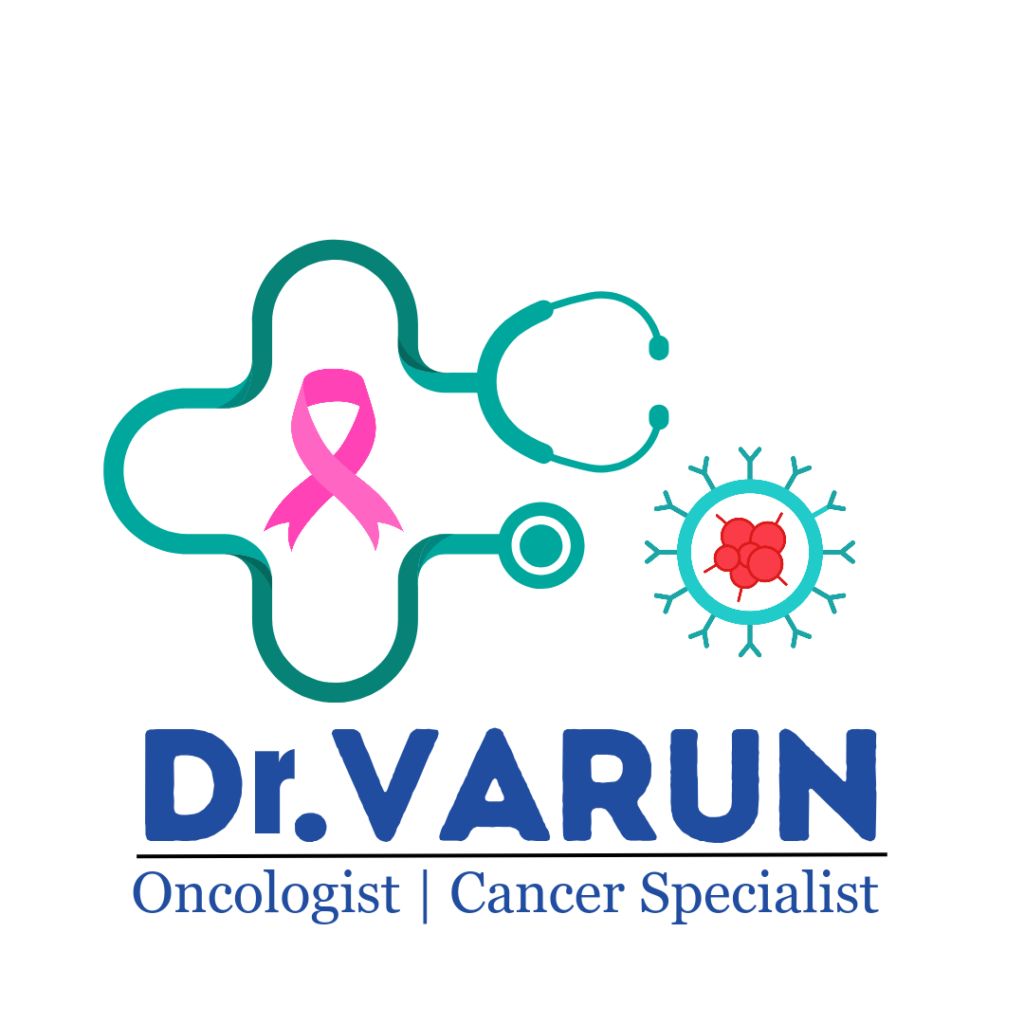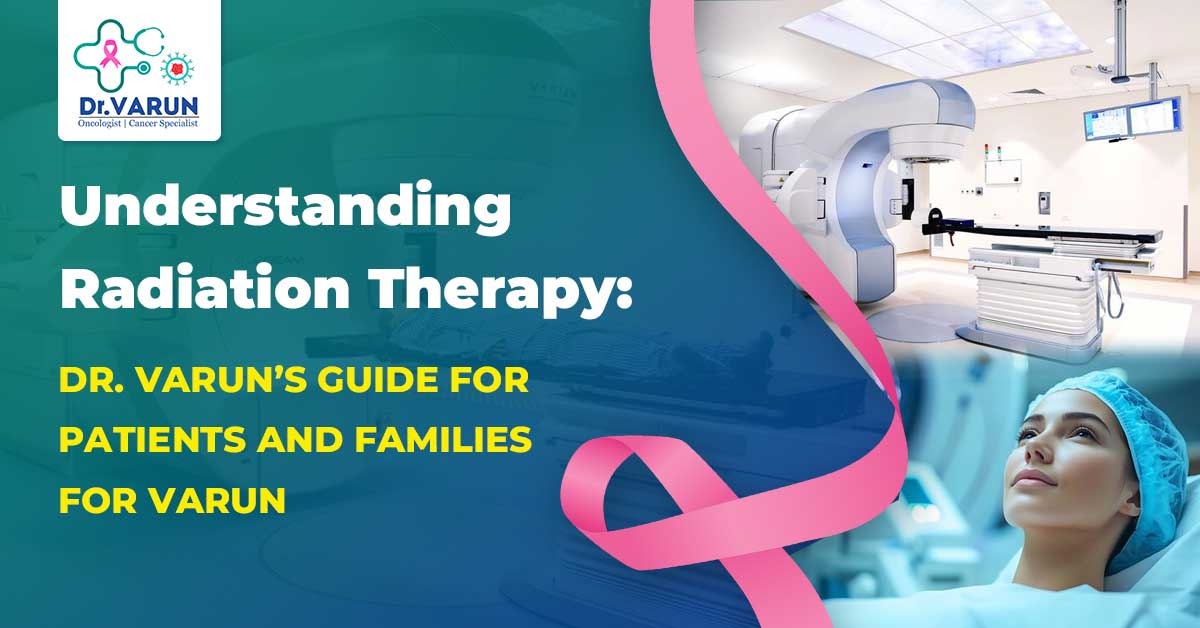Introduction
A cancer diagnosis is one of the most challenging moments a patient and their family can face. Understanding the treatment options available is key to making informed decisions and navigating this difficult journey with confidence. Radiation therapy is one of the most effective and commonly used treatments for cancer, offering hope and potential for recovery. In this blog, Dr. S. Varun Kumar, a renowned radiation oncologist, shares insights into what radiation therapy is, how it works, and what patients and families can expect during the process.
Whether you or a loved one is about to undergo radiation therapy, this guide aims to answer your questions, address your concerns, and empower you with the knowledge you need for a smoother experience.
What is Radiation Therapy?
Radiation therapy (or radiotherapy) is a cancer treatment that uses high-energy radiation, such as X-rays, to destroy or damage cancer cells. It works by targeting the DNA within cancer cells, preventing them from growing and dividing. Unlike chemotherapy, which affects the entire body, radiation therapy is typically localized, focusing on a specific area where the tumor or cancer cells are present.
Radiation therapy can be used as a primary treatment or in combination with surgery, chemotherapy, or other therapies to improve outcomes. Advances in radiation technology have significantly increased the precision and effectiveness of this treatment, minimizing damage to healthy tissues and reducing side effects.
Types of Radiation Therapy
Dr. Varun Kumar explains that there are several types of radiation therapy, each suited to different kinds of cancers and patient needs:
- External Beam Radiation Therapy (EBRT): The most common type, where a machine directs high-energy rays toward the cancerous area.
- 3D Conformal Radiation Therapy (3DCRT): Uses imaging technology to target the tumor with precision.
- Intensity-Modulated Radiation Therapy (IMRT): Delivers varying intensities of radiation to target tumors more accurately.
- Stereotactic Radiosurgery (SRS): A non-invasive procedure that delivers a single high-dose of radiation to small tumors.
- Brachytherapy: Involves placing a radioactive source directly inside or near the tumor.
The choice of therapy depends on the type, size, and location of the tumor, as well as the patient’s overall health.
What to Expect During Radiation Therapy
Understanding the process of radiation therapy can help alleviate anxiety and uncertainty. Dr. Varun provides a step-by-step overview of what patients can expect:
- Consultation and Planning:
- During the first visit, Dr. Varun and his team will review the patient’s medical history, perform imaging tests (such as CT or MRI), and develop a personalized treatment plan.
- Simulation Session:
- The patient will undergo a simulation session where the exact area for radiation is mapped out. Marks or molds may be created to ensure the patient stays in the correct position during each session.
- Treatment Sessions:
- Each session typically lasts 15-30 minutes. The patient lies on a treatment table while the machine delivers targeted radiation. The process is painless.
- Follow-Up Care:
- After completing radiation therapy, regular follow-ups are necessary to monitor recovery and ensure the cancer is responding to treatment.
Dr. Varun emphasizes the importance of maintaining open communication with your healthcare team to address any concerns or side effects.
5 FAQs About Radiation Therapy
1. Is Radiation Therapy Painful?
- No, radiation therapy itself is painless. You may feel discomfort from the positioning process, but the actual delivery of radiation doesn’t hurt. Some patients experience side effects after multiple sessions, such as fatigue or skin irritation, but these can be managed with the help of your care team.
2. What Are the Common Side Effects of Radiation Therapy?
- Side effects vary depending on the treatment area and dose. Common side effects include fatigue, skin changes (redness, peeling), and hair loss in the treated area. Dr. Varun advises patients to report any side effects promptly so they can be managed effectively.
3. How Long Does Radiation Therapy Take?
- The duration of radiation therapy depends on the type and location of cancer. Treatment schedules can range from a single session (for stereotactic radiosurgery) to daily sessions over several weeks for external beam radiation therapy.
4. Will Radiation Therapy Affect My Daily Life?
- Many patients can continue their normal activities during radiation therapy, though some experience fatigue. Dr. Varun suggests listening to your body and balancing rest with activity. Some patients may need to adjust their routines based on their energy levels.
5. Can Radiation Therapy Cure Cancer?
- Radiation therapy can be highly effective in treating and sometimes curing cancer, particularly when detected early. It can also help shrink tumors, relieve symptoms, and improve quality of life for advanced cases. Dr. Varun stresses that outcomes depend on various factors, including the type and stage of cancer.
Conclusion
Radiation therapy is a powerful tool in the fight against cancer, offering many patients a path to recovery and hope. Under the care of an experienced radiation oncologist like Dr. S. Varun Kumar, patients in Bengaluru can benefit from personalized, advanced treatment options that maximize effectiveness while minimizing side effects.
Understanding what to expect, staying informed, and maintaining open communication with your healthcare team are essential steps for a successful treatment journey. If you or a loved one is considering radiation therapy, don’t hesitate to reach out to a qualified expert like Dr. Varun for guidance, support, and expert care.
For more information or to book an appointment with Dr. S. Varun Kumar, contact Apple Cancer Clinic in Bengaluru today and take the first step toward healing and recovery.
Contact Details:
- Phone: +91 96065 78058
- Location: Sudhama Nagar, Bengaluru, Karnataka 560027
Your health is your greatest asset — trust it with experts who care.
To get more information visit our www.drvarunoncologist.com check out our Apple Cancer Clinic, or call us at +91 9606578058. You can also follow us on Facebook, Instagram, Linked In and X.

